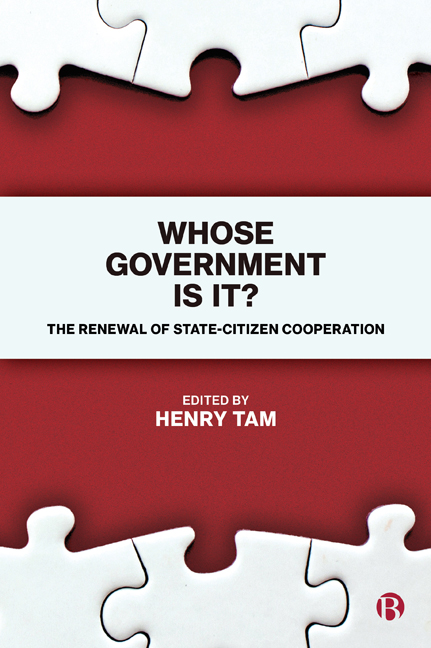5 - The Road to Empowerment
Published online by Cambridge University Press: 27 April 2022
Summary
Despite all that has been written about the proven value of reconnecting state institutions with the citizens they serve, many people may still remain unconvinced because of their assumptions about the nature of political power. For them, people do not seek out political power to give it away. And once they have got it, they will hold on to it tightly. Far from being ready to engage in cooperative decision making or sharing power with communities, politicians are on this view bound by circumstance to go it alone. Anyone trying to persuade them to change course would be deemed naïve in not appreciating what it is like to get into government and run it.
The only naivety, we have to say, is to suppose this is how politics actually works. Some politicians may want to act without having to involve too many other people; some may indeed think of the public as relevant only when their votes are needed at election times. But many, at all levels of government, are concerned with the views of their constituents, and want to understand and respond to them more effectively. We ourselves have entered politics so that we can leverage the power of government to improve people's lives. We know we did not get everything right, but our abiding interest has always been to learn to serve the public better. And the most important thing we learnt is that the power to advance the common good, far from being diminished, is greatly multiplied through being shared with citizens.
The best of the civil service and officials at local level share this endeavour. But human nature is what it is, and all too many still fall into the trap of being defensive about pulling down the barriers to public and democratic participation (Blunkett, 2001).
We came to value empowerment as a result of having to steer our way through the challenges of managing competing demands and tackling diverse problems with limited resources. Shaped by our own experiences of growing up in working class communities, encountering exclusion in all its debilitating forms, we wanted to ensure that the voices of ordinary people were heard, and their ideas taken on board.
- Type
- Chapter
- Information
- Whose Government Is It?The Renewal of State-Citizen Cooperation, pp. 73 - 88Publisher: Bristol University PressPrint publication year: 2019

